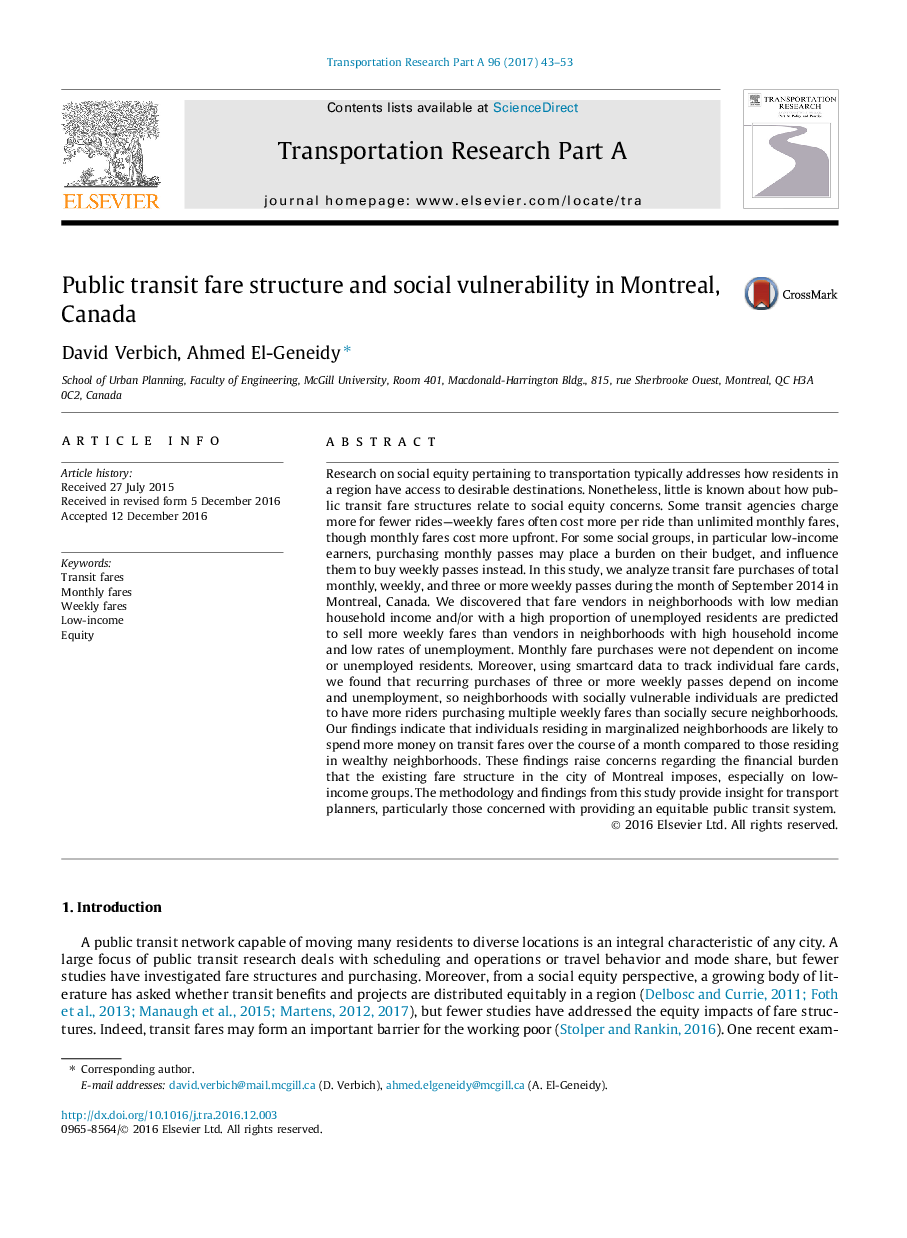ترجمه فارسی عنوان مقاله
ساختار هزینه حمل و نقل عمومی و آسیب پذیری اجتماعی در مونترال، کانادا
عنوان انگلیسی
Public transit fare structure and social vulnerability in Montreal, Canada
| کد مقاله | سال انتشار | تعداد صفحات مقاله انگلیسی |
|---|---|---|
| 97378 | 2017 | 11 صفحه PDF |
منبع

Publisher : Elsevier - Science Direct (الزویر - ساینس دایرکت)
Journal : Transportation Research Part A: Policy and Practice, Volume 96, February 2017, Pages 43-53
ترجمه کلمات کلیدی
کرایه های حمل و نقل کرایه ماهانه کرایه هفتگی درآمد کم، انصاف،
کلمات کلیدی انگلیسی
Transit fares; Monthly fares; Weekly fares; Low-income; Equity;

